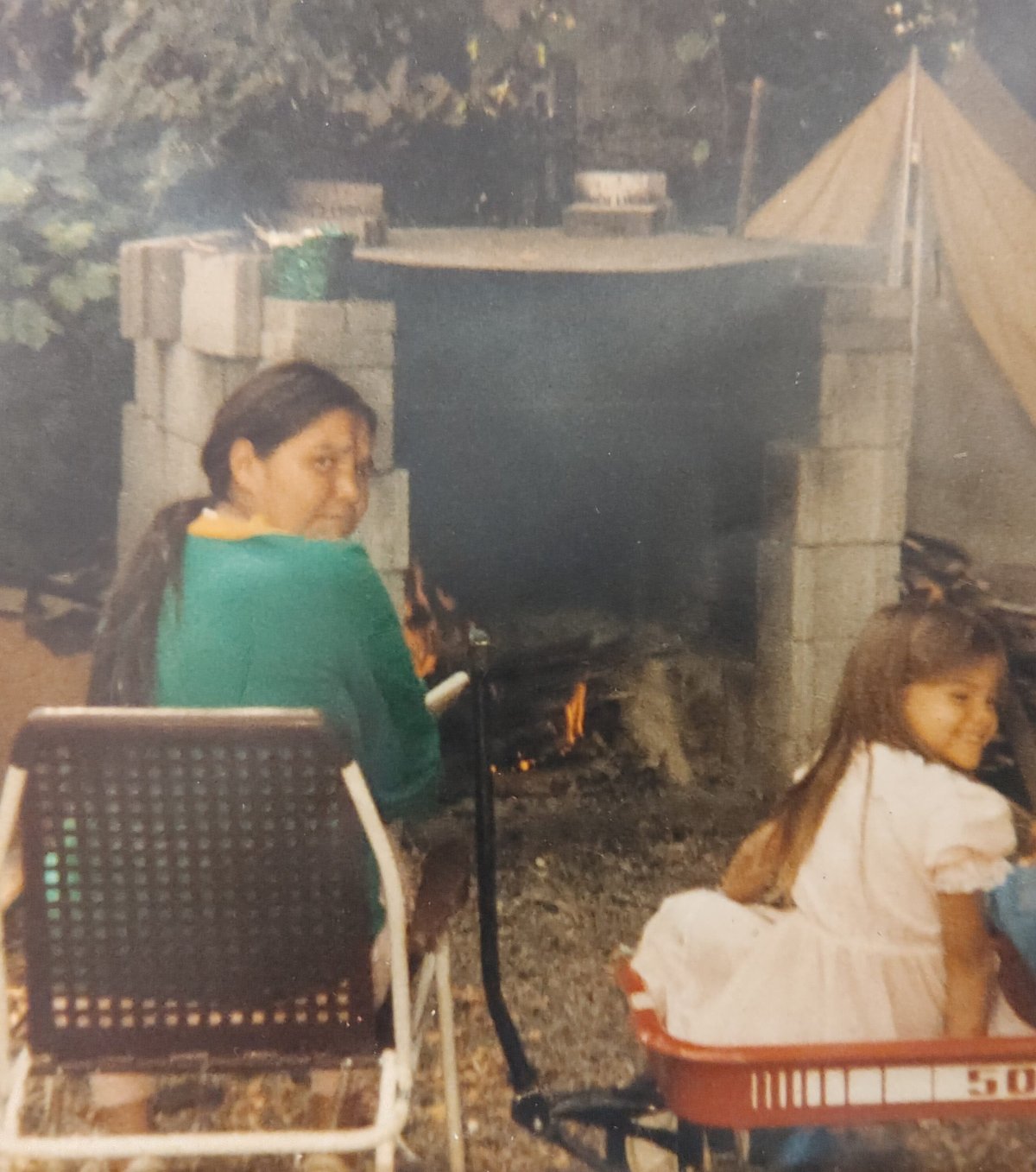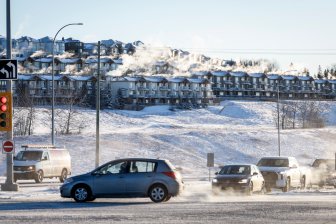WARNING: This story deals with disturbing subject matter that may upset and trigger some readers. Discretion is advised.

It was a reunion decades in the making and a kickoff to the new year the Quill family will never forget.
Sisters Nita and Brandy Quill met for the first time at a SkyTrain station in Vancouver last week, more than 30 years after they were separated during a period of colonial violence against Indigenous families known as the ’60s Scoop. The pair found each other on Facebook in the years after their mother’s death.
“It’s surreal. Nothing like this has ever happened in our lives before,” Brandy said, embracing her long-lost sister at Burrard Station downtown.
“This is to me a miracle. I’m just trying to take it in. It will probably take a long time to process it. It’s a dream come true.”

The ’60s Scoop refers to a period between the 1950s and 1980s after amendments to the Indian Act let provincial governments take over Indigenous child welfare. Thousands of First Nations, Inuit and Métis children were taken from their birth families, usually without consent, and placed in non-Indigenous homes.
Many were stripped of their language and culture, and left with complex questions about their identities. Many also experienced physical, sexual, mental and spiritual abuse.
“So much of our lives has been taken from us, so to ever be in a moment where we don’t have to be afraid of who we are, that we’ve been given our meeting, it just feels like it’s the beginning of something new — not just for us but for the country,” Brandy said. “I only wish our mom was still here to see it with us.”

Nita and Brandy are the daughters of Linda Quill, a Sapotoweyak Cree woman from Manitoba and a residential school survivor. Linda was abused and malnourished at residential school, eventually contracted tuberculosis and was placed in a sanitorium without her family’s knowledge, Brandy told Global News.
Brandy was born in Edmonton, placed in foster care at the age of five and eventually shipped off to an Ontario group home where she aged out of care and has lived independently since then. Nita was born in Winnipeg, taken from Linda at 18 months of age and adopted by a family in Scotland.
“I’ve always known there’s more to me, there’s more to who I am, there’s more to my story,” said Nita, who also met her niece — Brandy’s daughter Taylor — at the station last week.
“Blood memory goes very deep so I’ve been nervous for the last 24 hours. Meeting my sister definitely calms me. It’s a relief. It’s the end of an era but it’s also the beginning.”
Brandy said she and her mother “cried for years” wondering what happened to Nita, the eldest sister.
Nita eventually left her adoptive family in Scotland with no knowledge of her Sapotaweyak and Wuskwi Sipihk family in northern Manitoba, but through a Facebook post, connected with Brandy.
Both she and Brandy said they were told false stories of their mother having tried to leave them after their births.
“My story — it’s always been a journey of identity, of belonging, understanding. My story is one that’s repeated so much within a lot of families. It’s a story of being lost,” Nita said.
“The bigger picture is we are together and there’s a lot of hope … for a lot of the pain to go away and a lot of the happiness to come in. This is a promising day.”

The Manitoba government apologized for its role in the ’60s Scoop in 2015. The Alberta government followed suit in 2018 and Saskatchewan Premier Scott Moe did the same in 2019.
In 2022, the Sixties Scoop Indigenous Society of Alberta pressed the B.C. government to follow suit. No such apology has been delivered at the B.C. legislature.
“In B.C., we are committed to a respectful and genuine dialogue with the survivors, families and communities impacted by these historical wrongs on how best to move towards an apology that will be part of the healing process,” wrote B.C.’s Ministry of Children and Family Development in a Tuesday statement.
“We recognize an apology must also address the continued impact of colonization on Indigenous families, especially in terms of the child welfare system. This process must be sensitive and trauma-informed in order to reach a meaningful apology.”

Nita, Brandy and Taylor shared many tight hugs in Vancouver before going out for a meal and getting to know each other better. They credited their mother for their reunion and said they know she was watching, smiling from the Spirit World, as her daughters and granddaughter reunited.
“We’re just so blessed to be able to continue the next bit of our path together so we’ll see where that takes us,” Brandy said.
The family said they hope their story inspires others who have been through similar experiences and fosters empathy among those who haven’t.
— with files from Cliff Shim and Aaron McArthur
The Hope for Wellness Help Line offers culturally competent counselling and crisis intervention to all Indigenous peoples experiencing trauma, distress, strong emotions and painful memories. The line can be reached any time toll-free at 1-855-242-3310.
- 1 hospitalized, Coquihalla Highway traffic restricted south of Merritt after crash
- Stolen Border Collie Zoey recovered, vehicle still missing from New Westminster
- ‘Sent from my iPhone’: Public warned of extra deceptive gift card scam
- Burst pipes due to extreme cold overwhelm B.C. emergency services, restoration companies






Comments